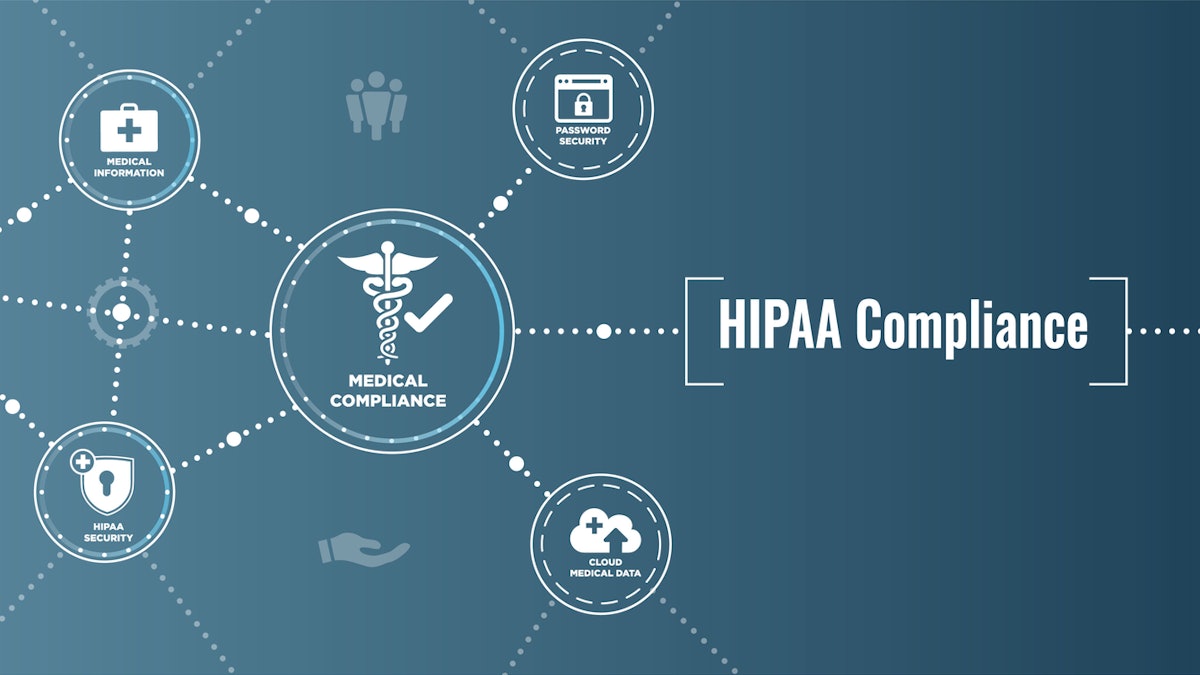Protection of sensitive information is a top priority in the digital age. This is true for organizations of all sizes. Health Insurance Portability and Accountability Act gives strict guidelines to the healthcare sector for the management, storage, handling and safeguarding of protected medical data (PHI). HIPAA Compliance is important for healthcare institutions to ensure privacy while avoiding penalties and maintaining an image of trust.

HIPAA law covers health care providers and health plans, as do healthcare clearinghouses. Also, it includes business partners that are HIPAA-covered. PHI includes any information that could be used to identify an individual, including names, addresses and credit card numbers. Also, it contains information regarding medical conditions and procedures. PHI can be purchased on the black market for an astronomical price due to the fact that it is used in identity theft.
The HIPAA privacy rule sets out guidelines regarding the use and disclosure PHI. To ensure integrity, confidentiality and accessibility of the information covered entities must apply policies and practices. The policies and procedures will provide security awareness training, as well as other measures, including access controls and security incident procedures. The entities must also be obliged to limit the usage and disclosure of personal data to what is necessary to achieve their intended purpose.
HIPAA Security Rules requires that covered entities establish technical, administrative and physical safeguards to protect the privacy, integrity and security of ePHI. These safeguards consist of audit and access controls as well as integrity controls in transmission safety, as well as a contingency plan. The entities that are covered must regularly conduct risk assessments to discover vulnerabilities and put in place mitigation measures.
HIPAA’s Breach Notification Rule mandates that covered entities notify affected patients as well as the Secretary for Health and Human Services and in certain circumstances, media in the event that there is a breach unsecured to PHI. The Privacy Rule defines a breach as the acquisition, use, or disclosure of PHI that is not permitted by the Privacy Rules that affects privacy or security. The covered entities must undertake a risk analysis order to determine if the PHI is in danger, and the damage that could result from the breach.
HIPAA obliges all employees to undergo ongoing training and education to ensure they understand their roles and responsibilities regarding security and privacy of patients. Risk assessments on a regular basis are conducted for covered entities to discover any vulnerabilities they might have. They should then take measures to reduce those risks. These may include the implementation of security controls, encryption of ePHI and creating contingency plans for the event the event of a security breach.
Modern technology has had a significant impact on all aspects of our lives and healthcare. Electronic health records are a groundbreaking tool that enables healthcare providers to manage and store patient data in a seamless manner. However, this has opened up security risks that are significant, making the strict adherence to HIPAA guidelines vital. The data of patients should always be protected. HIPAA has never been more vital than it is now with the growing threat of cyberattacks against healthcare institutions. HIPAA can help ensure the security and privacy of information about patients, making patients feel more confident in healthcare providers.
HIPAA compliance will allow healthcare facilities to safeguard their patients’ privacy and ensure the trust of patients. HIPAA violations could result in large fines, lawsuits or reputational harm. Office for Civil Rights of Department of Health and Human Services (OCR) enforces HIPAA regulations and has the power to investigate complaints and examine the compliance of organizations.
HIPAA compliance is crucial for healthcare providers to safeguard patients’ privacy in the current digital age. The regulations laid out by HIPAA give clear guidelines for the management of storage, handling, and protection of patient health information. The healthcare organizations should be sure that they have HIPAA-compliant guidelines and policies, perform periodic risk assessments, offer regular training and education to their employees and conduct regular risk assessments. As a result healthcare institutions can ensure the trust of their patients and avoid penalties and legal actions.
For more information, click how does hipaa protect patients